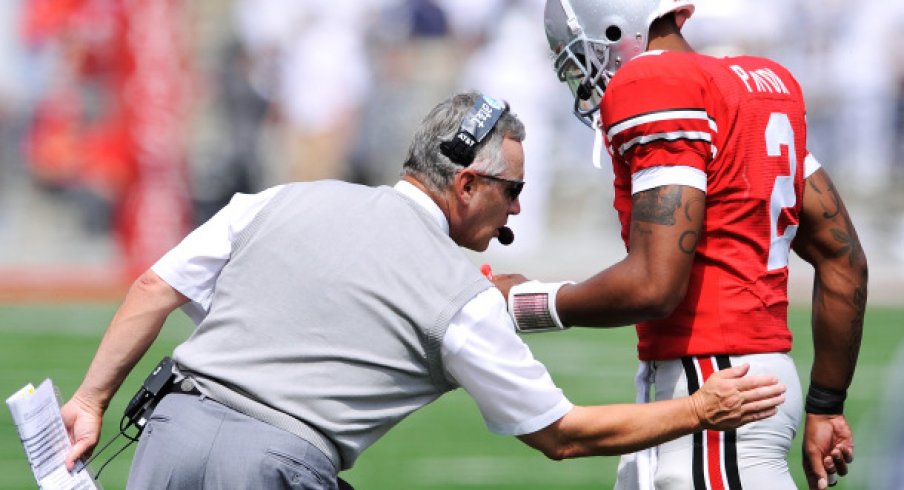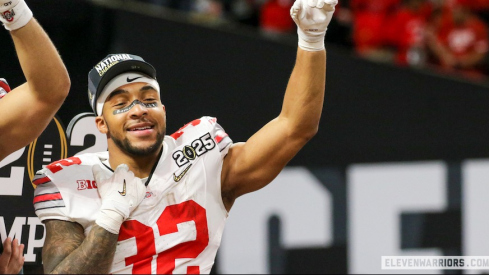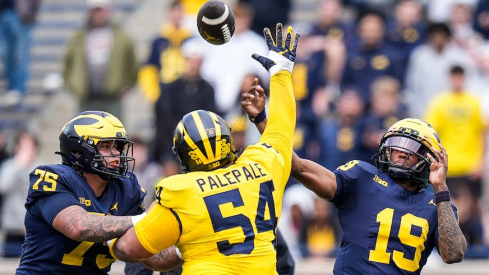Chances are you're more familiar with the details of the Caylee Anthony murder case than you are with the complexities of managing our country's almost 15 trillion-dollar debt ceiling. You know what should be more important to you personally? Right, the debt ceiling, times about 15 trillion.
It's not that you aren't intellectually curious about how or why our country conducts vital business by spending almost $120 billion more than it makes each month. It's just that there was this certifiably trashy skank in Florida was partying publicly the week her kid was killed, then she got caught in a web of lies about it and three years of non-stop tabloid coverage later, was somehow declared not guilty.
Stories of white females, whether trapped in a well, missing, murdered or murderous tend to do extremely well in generating readers and viewers, whereas most affairs related to governing are typically boring unless the affair involves the President lying under oath about an intern - ahem - on his White House staff. Even our government on the verge of running out of credit is barely on the radar by comparison.
It's not because of media bias for or against Casey Anthony. It's because for-profit media is in the business of generating more readers and viewers, capturing larger audiences and in turn increasing the rate of advertising that it can reasonably demand.
At least that's what reasonable people tell you to believe, and you should, because they're right. Still, there's no exact science to understanding why one specific person or entity generates a media firestorm while a similar and/or more salacious one does not.
At risk of becoming yet another dipshit who compares the Casey Anthony-anything to Ohio State, here goes: While Ohio State is not even close to being the only football program that is or will soon be awaiting an NCAA determination for its transgressions, media coverage has certainly made it seem that way.
It's quite clear who is newsworthy and who isn't, and it definitely isn't because of the news itself. Last week on July 13 it was "revealed" by New York Times college football beat reporter Pete Thamel that NCAA VP of Enforcement Julie Roe Lach told Gene Chizik in a room full of SEC football and basketball coaches that Auburn was still under investigation.
He packaged this bombshell as breaking news in a story that was published on page B14 of the July 14 New York Times. The defending BCS champions being under what is now approaching a significantly lengthy investigation should be headline news.
However, Thamel's "breaking news" was almost 45 days old. The SEC meetings in Destin where Lach's revelation occurred began on May 31, and they were exhaustively covered by plenty of national and SEC beat writers.
If you look back at what storyline emerged from the meetings where that bombshell was dropped, you'll see that instead of being about NCAA scrutiny over Auburn or anything else related to what came out of Destin, the ledes were almost unanimously about Jim Tressel with the angle that he had played ineligible players against Arkansas in the Sugar Bowl and Razorbacks coach Bobby Petrino wasn't happy about it (even though he had previously said - prior to losing - that he wanted to face Ohio State at full strength).
Meanwhile, from the week of those SEC meetings in Destin to July 14 when the Times finally ran Lach's revelation about Auburn, the following was reported of Ohio State football:
1) Ray Small's "tell-all" interview composed almost exclusively of blase generalizations and, eventually, wholesale retractions 2) Terrelle Pryor's driver's license being suspended and reinstated 3) George Dohrmann's pre-determined masterpiece in Sports Illustrated 4) Tressel's "resignation" 5) "Will Luke Fickell ever speak publicly?" 6) Fickell finally speaks publicly 7) Pryor leaves Ohio State 8) Pryor speaks to the media with his agent in a nationally-televised press conference 9) Pryor gets an ESPN reality show 10) FALLOUT BEGINS: Ejuan Price asks Ohio State for his release - will a flood of other recruits follow? 11) Let's ask Maurice Clarett what he thinks of all of this! 12) ESPN's 140th-ranked prospect Kyle Kalis switches his commitment from Ohio State to Michigan, resulting in an ESPN interview and headline on ESPN.com's main page that lasted the better part of a week.
This is a partial list, and it's not a result of bias. It's popularity, and Buckeye fans get it both ways.
If it were bias, Ohio State would have been wholly ignored while Tressel made the Big Ten championship the free space on his personal BINGO card for the last six seasons. The Buckeyes are inescapable in the press in both good times or bad, whereas Auburn could win the next five titles and nobody outside of the SEC footprint or college football's devoted users would care.
There's a reason they've been shafted out of two title shots over the past 20 years: They're Auburn - an elite football program in a second-tier football program's clothing; essentially the opposite of Notre Dame over the better part of the same time frame.
Auburn is the second-most popular team in Alabama, a state that consistently ranked in the high 40s out of 50 in most everything of consequence. Its largest city is 1/8 the size of Columbus. Being the second-most popular anything in Alabama does not register virtually anywhere else in the country or world.
Auburn's troubles are still of no help to Ohio State; our spotlight won't go away anytime soon: As each of the numerous public records requests Ohio State received from various media is processed, a new story is born. Each FOI submission is essentially a story you're dreading in gestation. As such, the AP requests that were filed in spring were fulfilled recently, and that stork delivered last week.
The AP story painted the picture of a head coach who was sometimes cavalier regarding required paperwork and minor rules, like allowing a parent to charge a seven dollar phone call to the university; an obvious, stupid and minor violation that Tressel has no excuse for allowing to happen. It also contained this tidbit, which can best be described as "narrative fuel" -
Tressel received a letter of reprimand from Geiger for giving a recruit a Buckeyes jersey, clearly breaking an NCAA bylaw, before he had even coached his first game. Geiger put the letter in Tressel's personnel file on June 15, 2001 — he was hired earlier that year on Jan. 17.
Tressel was not only Youngstown State's head football coach; he was the school's athletic director as well. He knew this was a violation. Why would he do this in his first few months on the job coaching a single game? And to whom did this jersey go to?
Of special interest...was an Ohio State football jersey with Mr. Humphrey’s No. 6 enclosed in a frame, which Mr. Tressel presented shortly after Drushaun’s death.
That bright red, unworn NCAA violation sits in a trophy case at Toledo Rogers High School - and make no mistake, it's a violation to the letter of the rules. But that's not the story, nor was that why the FOI request was filed: It was filed to provide content to support the headline, Records show Tressel rated poorly in reporting violations. More support:
Ohio's Bureau of Motor Vehicles looked into 25 sales involving Buckeyes players and determined that the dealers received fair-market value for the cars. The bureau did not address whether the deals met NCAA standards prohibiting benefits not available to the general student population.
Probably because the BMV isn't interested or capable of interpreting how NCAA standards intersect with car sales. "Fair-market value" kind of says it all and should merit deletion of this paragraph from the story, but why stray from the reason people clicked on the link?
That investigation into car sales headed by the Dispatch - the same one that reported Terrelle Pryor's used Nissan with over 80,000 miles on it as a "flashy sports car" and Thad Gibson's used $13,750 Chrysler 300 as a 300c with a purchase price of $0 - also found eight football players and a basketball player being pulled over in cars with dealer tags over a four year period. How can you explain away that?
Some involved used-car purchases in which the athletes were issued dealer plates instead of cardboard temporary tags while waiting for their registrations from the state motor-vehicle agency. One vehicle was a rental. And another involved an inaccurate license-plate number being reported on the public records.
It's definitely a far cry from a bunch of football players driving around in off-the-books loaner cars. REALITY CHECK: If you don't think this still isn't shady, gray-area abuse of the spirit of an NCAA rule then you get a special badge for being the homeriest homer. Fortunately, just being shady isn't an NCAA violation; otherwise John Calipari would be serving time in Attica with multiple, horny bunkmates.
There are media creations, and there are bankable stars: Ohio State, for a multitude of reasons, is a bankable star. Minor news on a bankable star usually plays better than major news on an understudy. That's part of the reason HBO's Real Sports investigation into Auburn had less staying power than a fart on an aircraft carrier.
No, NCAA troublemakers Southern California, North Carolina, Tennessee, Boise State and Georgia Tech have nothing on Ohio State, either in airtime or in violations; for the latter it's not even close.
In fact, you only seem to hear about any of these schools when they're being used in the media to benchmark Ohio State's troubles in the laziest and most dishonest way possible. There is no sane reason to compare this litany of transgressions to Ohio State other than to make that story more interesting while expanding its reach.
It's frustrating, but being an Ohio State fan is a voluntary exercise. Enhanced attention comes with the territory. Sure, ESPN has deliberately and repeatedly ignored reporting on Oregon and USCs scandals, but those are two teams that are not only regional, they routinely play their games while most of the country is asleep on channels like Versus that are only rumored to actually exist.
ESPN may be the worldwide leader in selective reporting, and that's not exclusive to just the Buckeyes, but Ohio State does not help itself either. Tressel did the program no favors by being as repeatedly cavalier with minor but necessary compliance tasks as the media has been in reporting minor but important facts of the story.
Gene Smith does Ohio State fewer favors with stuff like this and the delicate art of public relations has been a completely lost art for the university since the scandal started. It's been said that Tressel brought this upon himself by constructing a facade of virtuousness, getting taken down unmercifully because he grossly violated the image he had propagated to the tune of two how-to books on the subject.
That must only be partially true though, since Chizik has wrapped himself in Godliness in a way that would make Tressel blush. The difference is that one guy was at Ohio State; the other is at Auburn.
The Buckeyes aren't the Yankees, but they get Yankees treatment. So does Michigan. Notre Dame, Penn State and Nebraska do too. Alabama has a lapdog media contingent in a state with favorable privacy laws, and try to imagine Bama self-reporting and turning in its head coach to the NCAA the same way Ohio State did with Tressel. Stop laughing. Stop it.
On that very same day that Thamel confirmed Auburn was still under investigation, it was also revealed that Georgia Tech had been investigated by the NCAA, found guilty, put on four years of probation, had a season vacated and fined $100,000. It was a scandal and investigation that, incredulously, went completely unreported.
If there's a balance between reporting all the news and only reporting the interesting news, the Georgia Tech case is one where the entire media failed with a thud that nobody heard. And it wasn't because of any pro-Georgia Tech bias. People just don't care. Remember, reporters are people too.
This is why on the very same day that the Auburn news and the Georgia Tech scandal broke, CBS Sports' Dennis Dodd chose to publish his umpteenth scathing column about...you take a guess. Here's a hint: It wasn't about the debt ceiling.


